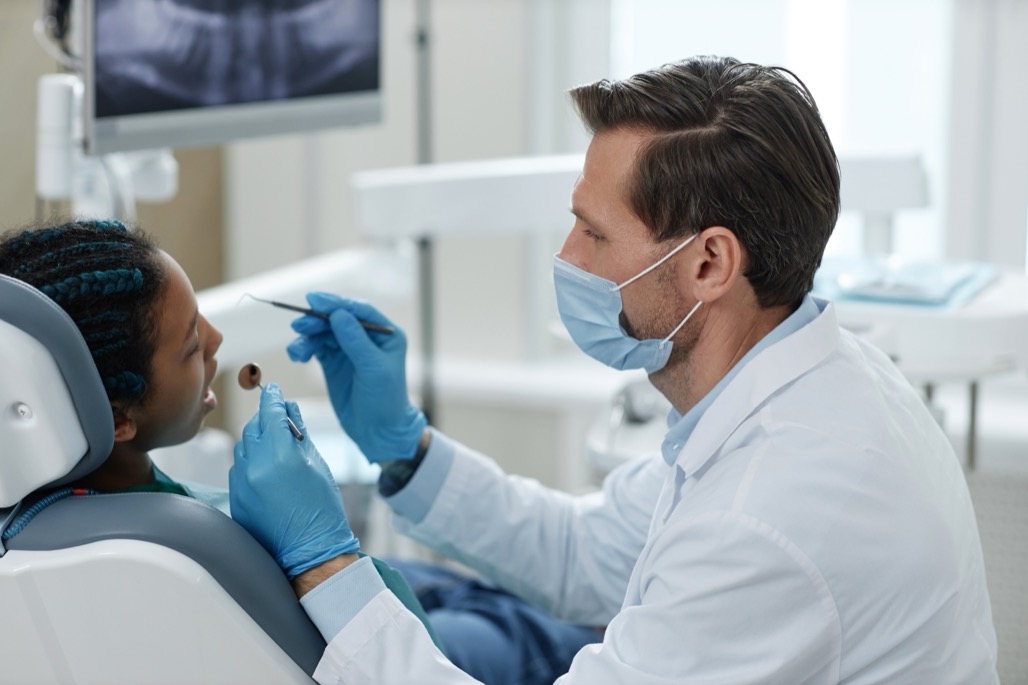Browsing Oral Emergency Situations: What to Do and Not to Do in Crucial Circumstances
When faced with dental emergency situations, the capacity to react appropriately can be vital in preventing further complications and ensuring the best feasible result. From toothaches to knocked-out teeth, broken oral fillings, jaw injuries, and dental bleeding, each situation requires a details strategy that can affect both long-term and temporary dental health and wellness.
Immediate Actions for Toothaches
Salt water functions by assisting to lower germs in the mouth, which can add to the pain and swelling connected with a toothache. It likewise assists to draw out any type of debris or pus that might be existing, supplying a calming effect on the inflamed tissues.
Along with rinsing with salt water, over the counter pain medicines such as advil can be taken to aid take care of the pain. If the discomfort worsens or continues, it is crucial to adhere to the suggested dose directions and consult with a health care service provider. Avoid putting aspirin straight on the tooth or periodontals, as this can bring about chemical burns.
If the tooth pain is or continues gone along with by various other signs such as fever, swelling, or difficulty breathing, look for punctual oral like address the underlying root cause of the pain. Early intervention can assist prevent further complications and ease pain.
Handling Knocked-Out Teeth
When dealing with knocked-out teeth, immediate activity is important to enhance the chances of effective reimplantation. The very first action is to choose up the tooth by the crown (the white part) instead than the root to avoid harming the fragile tissues.

Motivate action and correct handling of a knocked-out tooth can substantially influence the opportunities of successful reimplantation, so it is crucial to act swiftly and appropriately in such situations.
Taking Care Of Broken Dental Fillings
Appropriate maintenance and regular oral examinations are necessary for resolving busted oral fillings promptly and ensuring the durability of your oral job. When a dental loading breaks, it can reveal the inner layers of the tooth to germs, bring about possible infections and more damages if left untreated. If you experience a broken dental filling, it is important to call your dental expert instantly to set up a visit for repair work.
In the meantime, there are some steps you can take to manage a damaged dental filling at home. Stay clear of chewing on the side of the mouth with the damaged loading to prevent additional damages. Wash your mouth with cozy deep sea to help clean up the afflicted location and alleviate any discomfort. Non-prescription oral concrete can be utilized as a short-lived measure to cover the subjected filling and secure the tooth till you can see your dentist.
Bear in mind that a broken oral filling needs to be addressed promptly to stop complications and preserve the integrity of your tooth. Regular oral examinations can aid spot and resolve any problems with your fillings before they escalate right into even more considerable issues.

Managing Jaw Injuries
In situations of jaw injuries, swift and suitable monitoring is important to reduce pain and avoid additional issues. Jaw injuries can result from various reasons such as injury, mishaps, or oral treatments. When confronted with a believed jaw injury, it is vital to look for prompt medical attention from a healthcare specialist or see the emergency situation space.
In the meantime before obtaining professional treatment, there are a couple of actions that can be taken to handle jaw injuries. It is vital to stay clear of moving the jaw exceedingly and to avoid from eating crunchy or hard foods that could get worse the injury.
Additionally, if there is blood loss connected with the jaw injury, mild stress can be applied making use of a clean cloth to aid manage the bleeding. Nevertheless, it is crucial to bear in mind that these are short-term measures, and timely evaluation by a doctor is critical to evaluate the level of the injury and identify the suitable program of therapy.
How to React to Dental Blood Loss
Complying with the monitoring of jaw injuries, dealing with oral bleeding quickly is vital in making certain appropriate treatment and healing. Dental blood loss can arise from numerous causes, such as trauma, dental treatments, or underlying clinical problems. When encountered with oral blood loss, it is vital to continue to be tranquil and take instant action to regulate the scenario.
To react efficiently to dental blood loss, start by gently washing your mouth with a moderate saltwater remedy to clean up the area and remove any kind of blood clots. If the blood loss continues or is extreme, seek specialist dental treatment promptly.

Final Thought
Finally, it is crucial to act immediately and appropriately when top article confronted with dental emergencies. Immediate actions for toothaches, taking care of knocked-out teeth, taking care of broken dental fillings, taking care of jaw injuries, and reacting to dental blood loss are important actions to guarantee correct care and protect against further problems. Bear in mind to seek expert aid asap to resolve any dental emergency situation efficiently and successfully.
From toothaches to knocked-out teeth, damaged dental fillings, jaw injuries, and oral blood loss, each scenario demands a certain approach that can affect both short-term and long-lasting oral health and wellness. If this is not feasible, keep the tooth in a container of milk or the person's saliva to keep it damp while looking for prompt dental care.
Correct maintenance and regular dental check-ups are important for resolving damaged oral fillings immediately and making certain the long life of your oral work. Over-the-counter dental cement can be used as a temporary measure to cover the exposed dental filling and secure the tooth up until you can see your dental expert.
Immediate activities for toothaches, managing knocked-out teeth, dealing with damaged dental fillings, handling jaw injuries, and visit site reacting to dental bleeding are important steps to ensure correct treatment and protect against additional problems.